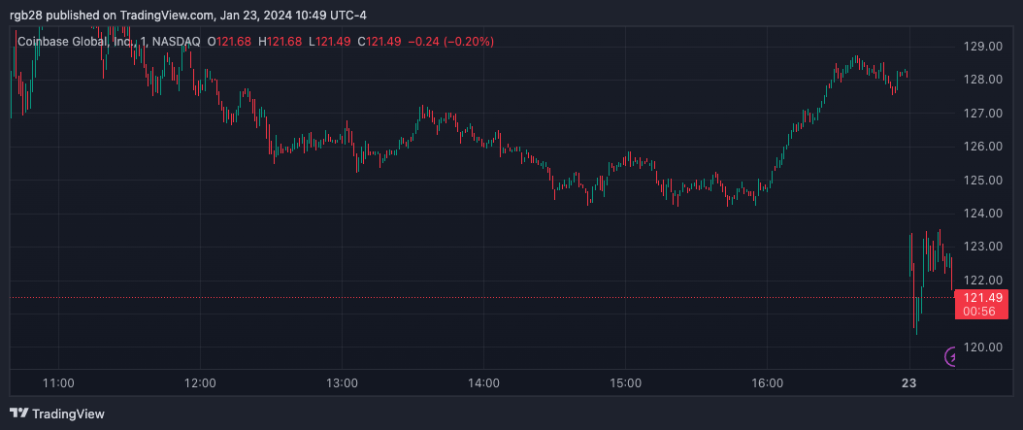Mixing it up: Coinbase Ripples Treasury With Letter Opposing Crypto Regulations
On January 22, Coinbase submitted a letter addressed to the US Treasury’s Financial Crimes Enforcement Network (FinCEN) as a response to the notice of proposed rulemaking (NPRM). The letter challenges the idea that crypto-mixing services are used primarily for illegal activities and money laundering.
Lack Of A “Minimum Threshold” In the New Rules
On Monday Night, Coinbase’s Chief Legal Officer (CLO), Paul Grewal, took to the X social media platform (formerly known as Twitter) to present Coinbase’s thoughts on the US Treasury’s proposed rule on crypto mixing.
As Grewal explains in the thread, the exchange’s position on regulations is supportive as long as they are “effective.” Still, it doesn’t consider the case with “bulk data collection and reporting requirements for all transactions involving any crypto mixing–even with no indication of suspicious activity.”
The NPRM “proposes requiring domestic financial institutions to implement recordkeeping and reporting requirements on transactions involving convertible virtual currency (CVC) mixing,” as the letter states.
The CLO highlights two key points that challenge the NPRM in the letter. The first point focuses on the lack of a “regulatory gap” to be filled as Exchanges like Coinbase are already required to “investigate and report suspicious mixing activity” connected to the platforms.
Grewal also questions why the US Treasury requested to receive reports of non-suspicious activity alongside the suspicious data.
The second point emphasizes that the lack of a “minimum threshold” in the new proposed rules will only lead to bulk reporting, as “all mixing has to be reported, regardless of how small the values.” He notes that Coinbase agrees with Congress’s previous statement that this data dump wastes time and resources.
Grewal believes that the US Treasury should assist exchanges in meeting their obligation to report suspicious mixing activity to properly focus on the issue of convertible virtual currency (CVC)’s illegal mixing. Lastly, the CLO added some subjections that could be useful if a new rule for crypto mixing regulation is necessary.
If a new rule is required, at least: A/ add a money threshold to minimize the unhelpful information reported and mitigate the heavy burden this poses on exchanges; B/ make the rule a recordkeeping – not reporting – requirement; and C/ provide an extended implementation period.…
— paulgrewal.eth (@iampaulgrewal) January 22, 2024
Grewal highlights that “specific guidance is more effective than mandatory bulk reports,” a sentiment that seems to align with the thoughts of Consensys’ Director of Global Regulatory Matters Bill Hughes, who shared on X the key points of the letter that the blockchain software company sent as a response to the US Treasury on January 22 as well. He stated:
Today, @Consensys submitted a letter to FinCEN concerning its proposal to have regulated financial intermediaries surveil and report activity relating to crypto token mixers. TLDR: if this has to happen, then please make it narrow enough not to do real damage to the ecosystem and its users.
The Importance Of Financial Privacy
Some previous crypto mining regulations have led to sanctions for crypto mixers and bans that prevent US crypto users and businesses from working with them. Most notably, in August 2022, the US Treasury sanctioned Tornado Cash for allegedly failing to “impose effective controls” that would prevent it from laundering funds for malicious cyber actors, resulting in the service being blacklisted and the arrest of one of the developers.
Although crypto mixers can be used for illicit activities, just like any other tool or asset, the main purpose of this type of tool is to help users preserve their privacy when it comes to crypto transactions by making them harder to trace.
These tools can help protect crypto users and enhance their security and identity from potential malicious parties trying to track a user’s transaction history.
There can be many reasons behind the desire to keep their anonymity. However, as Coinbase’s letter states, “There is nothing suspicious or illicit in desiring such a modicum of financial privacy from the world.”

from Bitcoinist.com https://ift.tt/qiztlp1
via IFTTT